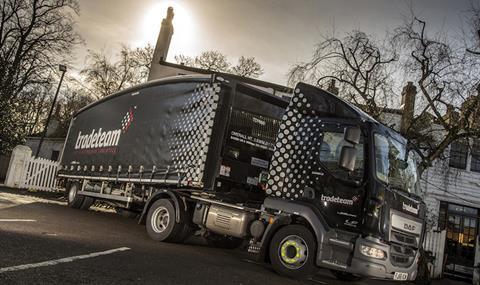
DHL Tradeteam has been threatened with industrial action by a second union over working conditions on its Carlsberg contract, which went live earlier this year.
GMB said that conditions faced by DHL Tradeteam employees at the Leeds depot were "draconian", and said it would be consulting members on possible industrial action if meetings with the operator this week are unsuccessful.
The union said DHL had ceased paying drivers for their compulsory breaks, and had upped working hours.
Last week Unite said it might ballot its members for industrial action at an Enfield site servicing the Carlsberg contract. Those at the site began work on the operation at the beginning of the month, and the union has claimed that staff have complained of being treated "appallingly".
Employees at the Leeds depot were formerly employed by Carlsberg, but transferred to DHL Tradeteam when the brewer outsourced its secondary logistics to the operator last year.
Since then, the union claims its members have seen "major changes to working hours and pay in what amounts to a clear breach of previously agreed terms".
Read more
- DHL Tradeteam faces industrial action over Carlsberg contract conditions
- DHL Tradeteam to commence Carlsberg UK secondary logistics integration next month
- Carlsberg UK to outsource secondary logistics to DHL Tradeteam
GMB organiser Ben Kirkham said: "The safety of our members is something that cannot be ignored.
“It is paramount that DHL have a duty of care to our members who cannot continue to work under this pressure. These draconian conditions are having an impact on their health and safety."
DHL had not responded to a request for comment at the time of publication.
DHL Tradeteam was subject to an investigation from the Competition and Markets Authority at the beginning of the year, as the Carlsberg contract took its share of the secondary logistics drinks market to 40%.
However the operator was found to have sufficient competition in the sector, and Tradeteam began work on the contract in July.
Carlsberg said it aimed to have all of the secondary logistics outsourced by the end of 2018.













